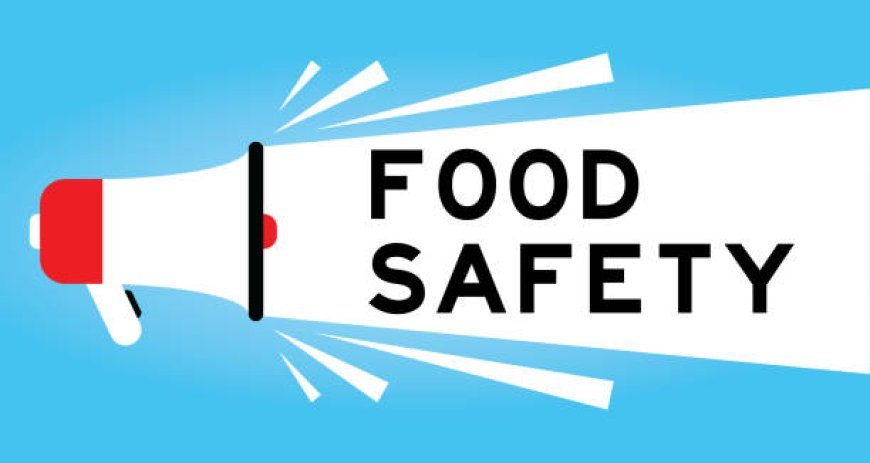ISO 22000 Certification: Ensure Food Safety with Global Standards

I. Introduction to ISO 22000 Certification
A. Overview of ISO 22000 and its Role in Food Safety Management
ISO 22000 is an internationally recognized standard for food safety management systems (FSMS), designed to ensure the safety of food at every stage of the supply chain.It outlines the necessary processes to identify and mitigate food safety risks, offering a framework that companies can adopt to provide safe products to consumers.This certification covers areas such as hazard analysis, critical control points, and the implementation of preventive measures to avoid contamination, ensuring that organizations comply with the highest standards of food safety.By adhering to ISO 22000, companies demonstrate their commitment to producing safe food, gaining credibility in a competitive marketplace.
II. Benefits of ISO 22000 Certification
A. Improved Food Safety: Ensuring food is safe for consumption.
ISO 22000 certification plays a crucial role in ensuring the safety of food products, protecting consumers from potential health risks. By implementing a food safety management system that follows the guidelines of ISO 22000, organizations can systematically identify and control hazards that may affect food safety at every stage of the supply chain. This structured approach helps prevent contamination, ensuring that food products are safe for consumption. With rigorous safety protocols in place, companies can effectively mitigate the risk of foodborne illnesses and maintain consumer confidence in the safety and quality of their products.
B. Legal Compliance: Meeting Food Safety Regulations and Standards
In today’s global market, compliance with food safety regulations is not just a best practice—it is a legal requirement. ISO 22000 helps organizations meet both national and international food safety standards, offering a framework for compliance with various regulations. This ensures that businesses can avoid costly penalties, fines, or legal challenges associated with non-compliance. Furthermore, the certification helps companies stay updated with changing regulatory requirements, providing a consistent and reliable approach to maintaining compliance with food safety laws. ISO 22000 certification reinforces an organization's commitment to following the most stringent safety standards, which ultimately protects both the business and its consumers.
III. The Role of Leadership in ISO 22000 Certification
A. Importance of top management commitment to food safety.
The success of ISO 22000 certification is deeply rooted in the commitment of top management to food safety. Leadership plays a pivotal role in fostering a culture that prioritizes the safety of food products throughout the organization. When top management is actively engaged, it sets a clear example for the rest of the team, signaling that food safety is a core value of the business. Their involvement is essential in driving the implementation of the food safety management system (FSMS), allocating resources, and ensuring that the company adheres to the standards required for certification.A commitment from leadership not only ensures compliance but also encourages employees at all levels to take responsibility for food safety, making it an integral part of the company’s overall objectives.
B. Defining Food Safety Goals and Policies
Effective food safety management requires clear, measurable goals that guide the organization’s actions. Top management is responsible for setting these goals, which should align with the overall strategy of the business and the specific requirements of ISO 22000. These goals serve as the foundation for the development of food safety policies that provide direction and consistency in operations. By defining specific, achievable objectives for food safety, management ensures that all employees understand their role in maintaining safety standards. Well-defined policies also help streamline the decision-making process and ensure that everyone is working toward common, established goals, contributing to a unified approach to food safety across the organization.
IV. ISO 22000 Certification and Global Trade
A. How ISO 22000 Facilitates Entry into International Markets
ISO 22000 certification is an essential asset for companies aiming to enter or expand in international markets. It serves as a universally recognized benchmark for food safety management, assuring global buyers, distributors, and consumers that a company meets stringent food safety standards.With this certification, businesses gain the credibility needed to compete in global markets where food safety regulations are critical.In many cases, ISO 22000 certification is a prerequisite for accessing certain markets, helping companies establish trust and build strong relationships with international clients.It simplifies the process of entering new regions by ensuring that products comply with local regulations, thereby opening doors to new opportunities and markets worldwide.
B. Aligning Food Safety Practices with Global Food Safety Standards
ISO 22000 offers a standardized approach to food safety, enabling organizations to align their practices with internationally recognized food safety regulations. This alignment is crucial for businesses looking to operate across borders, as food safety standards can vary significantly from one country to another. By adhering to ISO 22000, companies can ensure that their food safety management system meets the global expectations set by regulatory bodies and industry stakeholders. This approach not only improves food safety outcomes but also simplifies compliance with multiple national and international food safety regulations. It provides a consistent framework that guides organizations in managing food safety risks, regardless of geographic location, while maintaining the highest standards.
C. Enhancing Supply Chain Transparency for International Partnerships
ISO 22000 certification enhances transparency within the supply chain, an essential aspect of international trade. With global supply chains becoming increasingly complex, buyers and partners require assurance that food safety practices are consistently upheld throughout the production and distribution process. ISO 22000 fosters trust by ensuring that all suppliers within the chain meet the same rigorous food safety standards. This transparency allows companies to build stronger, more reliable relationships with international partners, as it demonstrates their commitment to managing food safety risks and complying with global standards.Furthermore, ISO 22000 facilitates effective communication and accountability among all stakeholders in the supply chain, making it easier to track and manage food safety practices at every stage, from raw materials to finished products.
V. The Future of ISO 22000 Certification
A. Emerging Trends in Food Safety and How ISO 22000 Adapts to Them
The food safety landscape is continuously evolving, driven by new challenges, technological advancements, and changing consumer expectations. ISO 22000 is designed to remain flexible and adaptable to these emerging trends, ensuring that organizations are equipped to meet new food safety requirements. As food safety risks grow in complexity, the certification framework evolves to incorporate innovative solutions, such as the integration of advanced technologies for monitoring and risk assessment.Furthermore, the increasing demand for sustainability and environmental responsibility has influenced the direction of ISO 22000, prompting the incorporation of green practices in food safety management.The standard will continue to adapt by offering guidelines that allow organizations to address these emerging challenges while maintaining the highest level of food safety across global supply chains.
What's Your Reaction?

























































